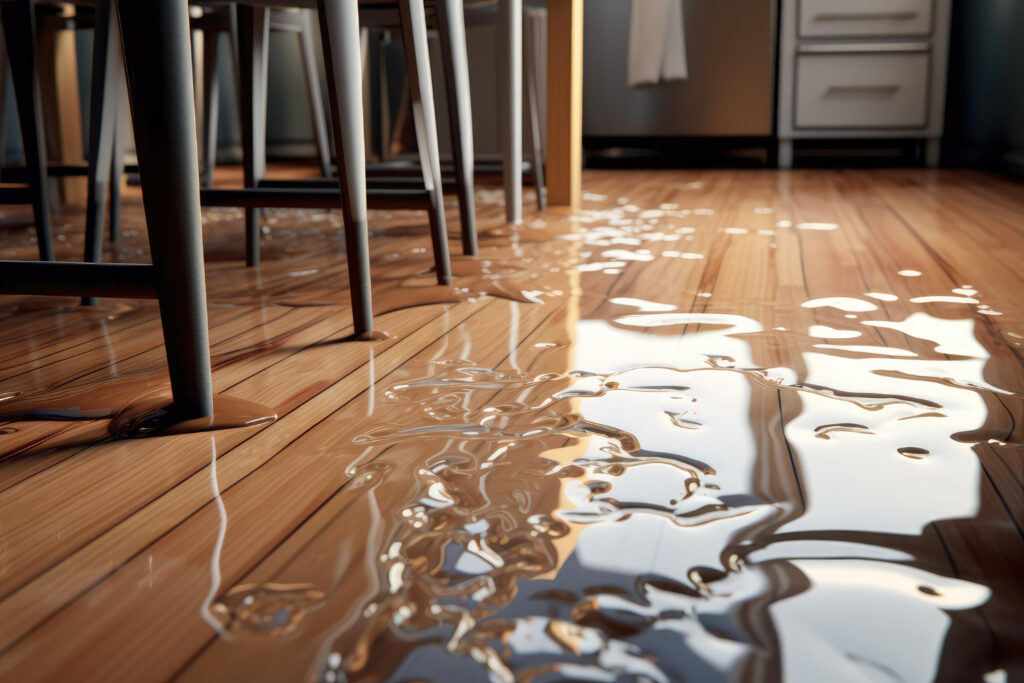Water damage can sneak up on homeowners, especially in places like Dallas where the weather can shift dramatically. Heavy rains and sudden storms often catch residents off guard, leading to unexpected damage. Addressing water damage quickly is the best way to protect your home and keep everything in good shape. Nobody wants to deal with the aftermath of water seeping into walls or soaking carpets, and tackling the issue early can save a lot of trouble down the road.
When water damage is ignored, it doesn’t just stay in one spot. It spreads, leading to problems like mold, structural issues, and a very unpleasant living environment. Walking into your living room and feeling the squishy floor beneath your feet is not just unsettling, but it can also become a costly repair if left unchecked. Being proactive and knowing what to look out for can help you catch the problem before it gets out of hand.
Common Causes of Water Damage in Dallas Homes
Water damage is a frequent issue in Dallas homes, where the weather has a mind of its own. Several things can introduce water into your home in unwelcome ways. Identifying these culprits can help homeowners stay prepared and potentially avoid some damage.
- Heavy Rains: Dallas is no stranger to heavy rains, especially during the rainy seasons. Flooding can happen quickly, overwhelming drainage systems and leading to water sneaking into homes from unexpected places. Gutters that aren’t cleared regularly can overflow and direct water straight into your walls.
- Burst Pipes: Another common issue is pipes that decide they’ve had enough. Changes in temperature or aging infrastructure can cause pipes to crack or burst. When a pipe bursts, water can gush out rapidly, soaking everything around it.
- Poor Drainage Systems: Drains that aren’t efficiently directing water away can lead to trouble. Water sitting too close to your foundation or basement will eventually find its way in. Keeping an eye on drainage systems and ensuring they’re working as expected is a good preventive measure.
- Humidity and Condensation: Warm, humid air mixing with cooler surfaces can cause condensation. Over time, this gathered moisture can promote water damage in areas like attics and basements.
By being aware of these common causes, you can take steps to protect your home proactively. Regular maintenance and vigilance can go a long way in preventing unwanted water from wreaking havoc in your living space.
Signs of Water Damage to Look For
Recognizing the signs of water damage early can prevent more severe problems. Sometimes, it’s easy to see water damage, while other times, it can be sneaky. Keep an eye out for these telltale indicators to catch potential issues in your Dallas home before they escalate.
- Visible signs: Look for water stains on ceilings and walls. These typically appear as dark spots or yellowish discoloration. Peeling paint or wallpaper is another common sign, often due to moisture loosening the adhesive. Warped or buckling floors also suggest underlying water damage beneath the surface.
- Subtle indicators: Musty or damp smells should raise a flag. They often indicate hidden water accumulation, possibly leading to mold growth. An unexpected jump in your water bill might also suggest a hidden leak somewhere in your plumbing system.
- Other clues: Keep an ear out for dripping or the sound of running water when there’s no obvious source. This might point to a leak behind walls or under floors. When these signs are spotted, don’t wait to take action.
Steps to Take When You Discover Water Damage
Finding water damage in your home can be worrying, but quick action can limit the harm. By following these steps, you can manage the issue effectively and prevent further damage.
- Turn off the water source: If a burst pipe or leaky appliance is the culprit, shutting off the main water supply can stop more water from entering your home.
- Move your belongings: Ensure your items are away from affected areas to prevent further damage. Use towels or mops to soak up any standing water if it’s manageable.
- Contact the experts: Professional help is crucial for a thorough assessment and repair. Trained professionals can pinpoint damage that may not be apparent and provide solutions to prevent recurrence.
Having a plan in place when water damage is discovered can make managing the situation far less stressful, protecting your home and belongings.
Preventing Water Damage in the Future
Prevention is key when it comes to water damage. By taking proactive steps, you can safeguard your Dallas home from potential future problems.
Regular home maintenance can help you avoid severe issues. Consider these tips to keep your home safe from water damage:
- Routine maintenance: Inspect your roof regularly for missing shingles or leaks. Ensure gutters are clear and direct water away from your home’s foundation. Check appliances like washers and refrigerators for leaks or worn-out hoses.
- Climate-specific preparations: Dallas experiences varying weather patterns. Make seasonal adjustments such as sealing windows and doors before heavy rains and checking drainage systems to handle sudden downpours effectively.
- Stay vigilant: Water damage doesn’t have to catch you off guard. Regular inspections and attention to warning signs can help identify problems early and save you from bigger headaches later.
By adopting these preventive measures, you can maintain the safety and value of your Dallas home for years to come.
Whether you’re tackling unexpected leaks or dealing with major flooding, staying informed and prepared can significantly reduce the impact of water damage on your home. For expert assistance with water damage in Dallas, trust Spire Construction & Remodeling to provide reliable solutions that keep your home safe and sound.

